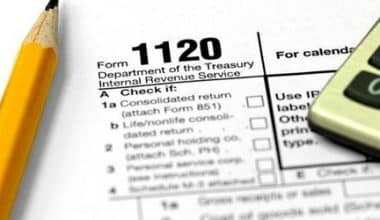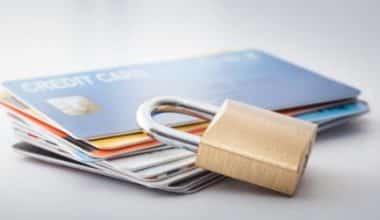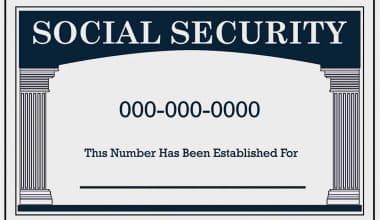When you have a mortgage, your escrow account allows you to pay your property taxes and insurance in more manageable monthly increments rather than having to cover these costs all at once each year.
When that account does not have enough funds to cover these costs, this is referred to as an escrow shortage. What causes this to happen, can you avoid it, and should you pay escrow shortage in full? Let us take a look at this article.
What is an Escrow Account?
An escrow account is designed to help you divide the cost of various home-related expenses into manageable monthly payments. An escrow account will typically include a number of items. Some items in an escrow account may be more familiar to you than others:
- Hazard Insurance: Your homeowners’ insurance payment is held in an escrow account. This category may also include fire and wind insurance. This insurance covers damage to your property. If there is ever damage, your lender will want to ensure that you have enough coverage so that the property can be repaired or rebuilt to at least its original value. Personal liability and personal property protection may be included depending on the coverage and what you pay for.
- Flood Insurance: This type of hazard insurance is so common that it deserves its own category. You may be required to have flood insurance if you live in a flood zone. The water zones shift as weather and environmental patterns change, so even if you weren’t required to have flood insurance when you first purchased your home, it may be necessary at some point.
- Mortgage insurance: If you put down less than 20%, you’ll have to pay private mortgage insurance until you reach at least that amount of equity with a conventional loan. FHA and USDA each have their own types of mortgage insurance requirements, which are typically for the life of the loan.
- Property taxes: Real estate taxes on your property are typically paid out of an escrow account in monthly installments.
Read Also: STATES WITH LOWEST PROPERTY TAXES: Why States Allow Low Taxes on Property
- Ground rents: In some cases, you may own your home but not the land on which it is built. If that describes your situation, you have a ground rent. This fee would be added to your escrow account and paid to your landlord when the time came.
- Special assessments: If your county or other taxing authority levies a recurring special assessment, it is included in your escrow account. It’s important to note that this isn’t always the case if the fee is only one-time.
- Charges that may take first-lien position: Any payment that may take precedence over your mortgage if you default and the property must be sold may be included in your escrow account. Loans for solar panels installed on your home are a good example of this.
Property taxes, hazard insurance (including homeowners insurance), and other policies, as well as any applicable mortgage insurance, are typically included in an escrow account.
What is an Escrow Shortage?
An escrow shortage occurs when your escrow balance falls below a certain minimum required level. We’ll get into how that level is defined later, but for now, know that you have a shortage whenever the minimum balance isn’t met.
In addition to a shortage, there is something known as an escrow deficiency. This occurs when you do not have enough funds in your escrow account to pay all of your escrow items, such as taxes and insurance. If this happens, you’ll have a negative balance in your account, and your mortgage lender will advance the difference between what’s in your account and what’s owed. You’ll have to pay this back when your next escrow analysis is performed.
On the other hand, you might have an escrow surplus. This happens when you put more money into your escrow account than you needed to the previous year. This is most likely to happen if your property value has decreased sufficiently to change your tax assessment, or if you switched to a less expensive homeowners insurance policy.
What Causes an Escrow Shortage?
Lenders must conduct an annual escrow analysis. During the analysis, a lender evaluates your property tax and determines whether your escrow balance is sufficient to cover your property tax bill and homeowners insurance.
If your property tax or home insurance premiums rise and your lender underestimates the cost of either bill, an escrow shortage may result.
An account analysis allows lenders to perform some “checks and balances” on their estimates of your monthly escrow payments. It’s a look back to make sure you paid the correct amount in escrow. And it’s a look ahead to adjust future monthly payments based on bill changes.
What Is the Difference Between an Escrow Deficiency and an Escrow Shortage?
You still have money in your escrow account if you have an escrow shortage, but not enough to pay your tax and insurance bills.
An escrow deficiency indicates that your escrow account has a negative balance. This can happen if your tax or insurance bills come due and you didn’t have enough money in your account to cover them, forcing your lender to pay the remaining balance with their own money.
What Happens if My Account Has an Escrow Shortage?
If there is an escrow account shortage, your lender will notify you and tell you how much you owe. You can also expect your escrow payments to rise as a result of the newly assessed bills.
You may come across an escrow advance when dealing with a shortage or deficiency.
We’re sorry to burst your bubble if you thought your escrow servicer’s advance was a gift. An escrow advance is not a gift. You must pay the money loaned to you by the servicer.
Although not all escrow servicers provide escrow advances, it’s important to understand what they’re talking about if you hear this term.
Example of Escrow Shortage
Assume your lender estimates your annual tax bill at $1,800 and your homeowner’s insurance at $900.
When your lender performs their annual escrow analysis a year later, they assess your property tax and send you an annual escrow analysis statement. According to the statement, your property tax and insurance have increased from their initial estimates. Your property tax bill has increased to $2,400, and your homeowner’s insurance has increased to $1,200.
Let us examine the breakdown:
- Taxes: The estimated annual bill is $1,800.
- $2,400 in reality
- The difference is $600.
- Insurance: The estimated annual bill is $900.
- $1,200 in reality
- The difference is $300.
- The total shortage is $900. (This is the difference between taxes plus the difference for insurance.)
You must pay an additional $900 to cover the difference between the estimated cost and what is owed. At this point, your escrow servicer may apply an escrow advance to cover the difference and then bill you, or they may bill you directly for the difference.
Remember that because your bills have increased, so will your monthly escrow payments.
Mortgage Escrow Shortage Payment
If you have an escrow shortage but have not yet reached a negative escrow account balance, you must pay the difference between your current account balance and the new monthly escrow payment amount. Most mortgage lenders require home buyers to have at least two months’ worth of escrow payments saved up.
There are generally two options for escrow shortage payments, whether you are facing an escrow shortage or an escrow deficiency. You can pay the escrow shortage balance in one lump sum or in monthly installments over a 12-month period. The option you select is simply determined by the amount owed and your current financial situation.
If you can afford to pay your escrow shortage in one lump sum, keep in mind that your monthly escrow payment will most likely increase due to an increase in your service costs, such as property taxes or insurance rates.
While you cannot change your local property tax rates to reduce your escrow payments, there are ways to reduce your monthly payment costs.
The simplest way to accomplish this is to shop around for low-cost homeowners insurance. You can compare homeowners insurance options to see if a different company or policy would provide a lower homeowners insurance rate.
Should I Pay Off My Escrow Shortage in Full?
Guess what if your lender allows you to choose between a lump-sum payment and monthly installments? One option is not superior to the other. What matters most is that you select the payment method that best suits your financial situation.
Both options have advantages and disadvantages. Knowing what they are may assist you in determining which option is best for you.
Pay in full:
- Pro: You’ll have one less bill to worry about, and the shortage will not be applied to future mortgage payments.
- Con: You need the money upfront to pay off the shortage.
Pay in installments:
- Pro: Because payments can be spread out over 12 months, this may make repaying the shortage more manageable.
- Con: Your future monthly payments will rise as your bills rise and you pay off the shortage.
Why Do I Owe More Than the Amount of My Escrow Shortage?
Your annual escrow analysis statement may show that you are short a larger sum than what is required to cover a shortage.
While you are behind on your payments, your lender can plan ahead of time for the following year and ask you to pay a higher shortage amount. This increases the amount remaining in your escrow account after the shortage is paid off, so you aren’t starting from zero.
Consider our previous example once more. To summarize, your escrow analysis statement stated that you were $900 short for this year’s property tax and insurance payment. Your servicer is now requesting $1,800 for the escrow shortfall.
The first $900 would cover the bills for this year. The remaining $900 would be used to increase your escrow balance for next year’s bills, as your servicer is already aware that your bills will rise.
You may be short the following year, but because you paid a higher shortage amount this year, you should not have to pay an even higher shortage amount the following year.
Is It Possible to Pay My Escrow Shortage Online?
This will vary depending on your lender, but if you can make regular monthly payments online, you should be able to make one-time payments, including escrow shortages, as well.
Sign into your Rocket Account to pay your escrow shortage with Rocket Mortgage.
Can I Pay My Escrow Shortage With a Credit Card?
You won’t be able to pay your escrow shortage with a credit card because mortgage lenders typically do not allow borrowers to make mortgage payments with credit cards.
What Can I Do To Avoid an Escrow Shortage?
It can be difficult to avoid an escrow shortage because changes in your tax and insurance costs are not always predictable. You can, however, be proactive by keeping track of your escrow account and setting aside some extra funds for unexpected home-related costs, such as an escrow shortage.
How Do I Reduce My Escrow Payments?
Because your annual bills are lower, lowering your escrow payments may make paying off an escrow shortage more manageable.
You may not always have control over changes to your taxes and insurance as a homeowner, but there are a few things you can do to help lower your monthly escrow payments:
- Shop around for a lower insurance premium: You might be able to find a policy with comparable coverage at a lower cost, or you might be able to get a discount on a new policy or a combination of policies.
- Examine your taxes to ensure that you are only paying what you owe and to determine whether any exemptions may apply to your property or living situation. If you have any doubts, consult your local tax authority or a financial advisor.
Conclusion
Though escrow accounts make yearly tax and insurance payments more manageable, borrowers should be aware that, even with a fixed-rate mortgage, changes in taxes or insurance can result in an escrow shortage and a higher monthly payment.
It’s always a good idea to be prepared as a homeowner, especially for unexpected one-time costs or increases in your regular costs. When it comes to your escrow account, keeping an eye on it and having a savings cushion can help you prepare in case of a shortage.
If you want to reduce your monthly mortgage payments, refinancing may be a good option for you.
Related Articles
- ESCROW ADVANCE: Definition & What You Need To Know
- Escrow Disbursement: Definition, Types, Pros, and Cons
- CLOSE OF ESCROW: Meaning and Guide To The Process
- ESCROW REFUND: What To Expect With An Escrow Refund
- Escrow Agent: A Simplified A-Z Guide (+ Updated Sample)





